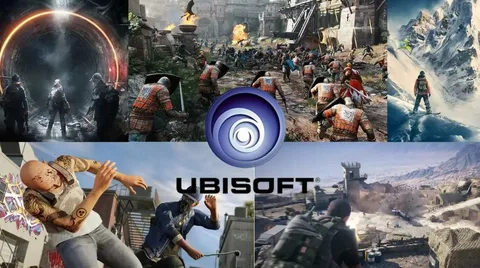Introduction
In the ever-evolving world of digital gaming, few things have stirred as much controversy as the introduction of NFTs (non-fungible tokens). Game publishers like Ubisoft, who have traditionally led innovation within the industry, have ventured into the NFT space, experimenting with blockchain-based gaming assets in hopes of revolutionizing in-game economies.
However, Ubisoft’s latest NFT game faced an unexpected setback when a single player managed to derail its launch and stir widespread debate within the gaming community.
This article will take a deep dive into how one player influenced Ubisoft’s NFT project, explore the broader implications of this disruption, and examine what this could mean for the future of NFTs in gaming.
1. Ubisoft’s NFT Ambitions: Setting the Stage
Ubisoft has long been known for pioneering advancements in gaming. Their efforts to integrate NFTs into their games aimed to open up a new dimension of player engagement and asset ownership.
By allowing players to own unique digital items as NFTs, Ubisoft hoped to create an ecosystem where these assets could be owned, sold, or even traded across different platforms. Their initial entry into NFTs began with projects like Quartz, which offered limited-edition digital items within games. These NFTs promised players real-world value and a sense of exclusivity—a tempting proposition for those looking to collect or trade digital assets.
The NFT space seemed like the perfect next step in Ubisoft’s ambition to stay ahead in the gaming industry. However, while some fans embraced the idea, the community response was mixed, with concerns over environmental impact, monetization strategies, and overall purpose. Despite the challenges, Ubisoft continued with its NFT initiatives, but with the launch of their latest NFT game, things took an unexpected turn, largely because of a single player who saw an opportunity to challenge Ubisoft’s NFT vision.
2. The Player Who Derailed Ubisoft’s NFT Game
The concept of “ownership” in games has always intrigued players, but the inclusion of NFTs brought both new potential and pitfalls. As Ubisoft’s latest NFT game launched, one player, widely known by their online alias, decided to take a stand.
They saw the NFT model as a step in the wrong direction, expressing that NFTs in gaming could fundamentally disrupt the community-driven nature of gaming and reduce it to a marketplace. The player set out to disrupt the game by organizing a boycott and using social media to voice criticisms, rapidly gaining traction.
This individual’s actions sparked conversations within online forums, leading to widespread backlash. The player emphasized the ethical concerns surrounding Ubisoft’s NFT integrations, accusing the company of exploiting players’ financial investments for corporate gain. Their arguments resonated with many who were already on the fence about the NFT model, causing a significant portion of the community to withdraw from the game, some even demanding refunds or deleting their accounts entirely.
3. How Community Response Amplified the Player’s Impact
The initial disruption caused by this player’s objections was powerful, but what truly derailed Ubisoft’s NFT game was the snowball effect. In response to the player’s criticisms, entire gaming communities began questioning the necessity of NFTs in games and sharing their own frustrations. The backlash grew to encompass not just Ubisoft’s game, but the broader implications of NFTs in gaming as a whole.
Influential gaming critics, streamers, and industry analysts weighed in, magnifying the criticisms and discussing concerns about whether NFTs would ruin the gaming experience by introducing market-driven mechanics.
Ubisoft faced a dilemma. They could either defend their NFT integration or scale back to appease their audience. Instead, they remained silent for a significant period, which further aggravated the community.
The narrative shifted to Ubisoft being out of touch with its players, which ultimately led to a substantial reduction in user engagement. The once-promising NFT game had been effectively derailed by a player whose influence had grown far beyond what anyone could have anticipated.
4. The Aftermath: Lessons Learned and the Future of NFTs in Gaming
The player’s actions not only impacted Ubisoft’s NFT game but also opened a larger discussion about the future of NFTs in the gaming industry. Ubisoft was forced to reckon with the failure of its NFT strategy and the dissatisfaction it generated among its core players.
This derailment highlighted that players valued the intrinsic experience of gaming over asset ownership, and many viewed NFTs as a threat to that experience. The debate revealed that many gamers are skeptical of introducing monetization models that might prioritize profits over playability and fairness.
Ubisoft’s setback became a learning point for other game developers, who observed the situation and reconsidered their own NFT ambitions. Some developers decided to delay their blockchain integration plans, while others dropped them altogether.
Ubisoft, too, has had to go back to the drawing board, considering the player’s feedback and the community’s overall concerns about NFTs. This entire episode has brought to light that while NFTs can introduce new layers of engagement, they need to be implemented in a way that resonates with the gaming culture and values.
Conclusion
The derailment of Ubisoft’s latest NFT game is a pivotal moment in the industry’s approach to blockchain technology.
One player’s actions underscored the power of community voices in influencing corporate decisions, particularly within the gaming world, where fans expect companies to prioritize the gaming experience above all else. While NFTs might still have a future in gaming, they must be thoughtfully integrated with player preferences at the forefront.
Do you think NFTs have a place in gaming, or do you agree with the player’s stance? Share your thoughts in the comments below and let us know if you would support NFT integrations in your favorite games.







